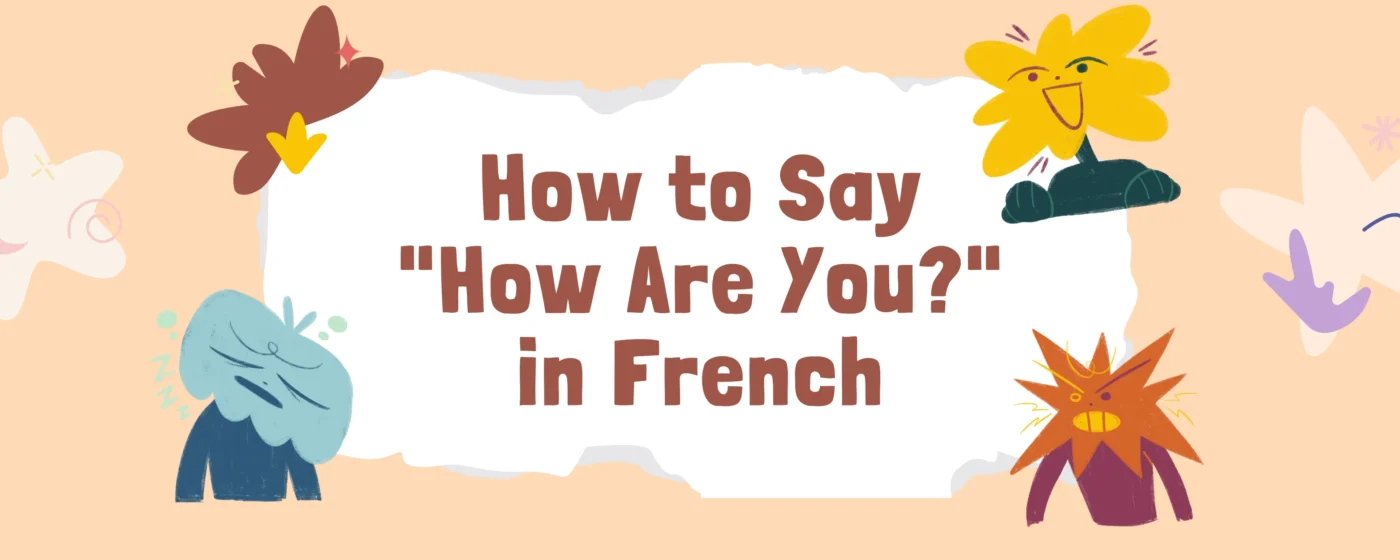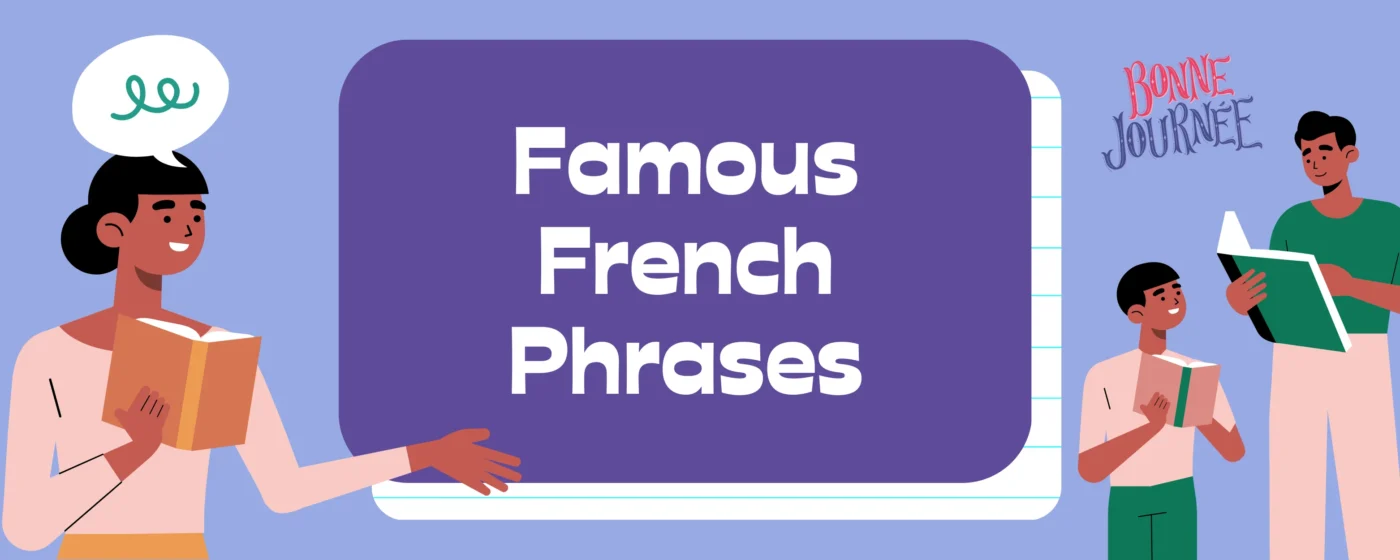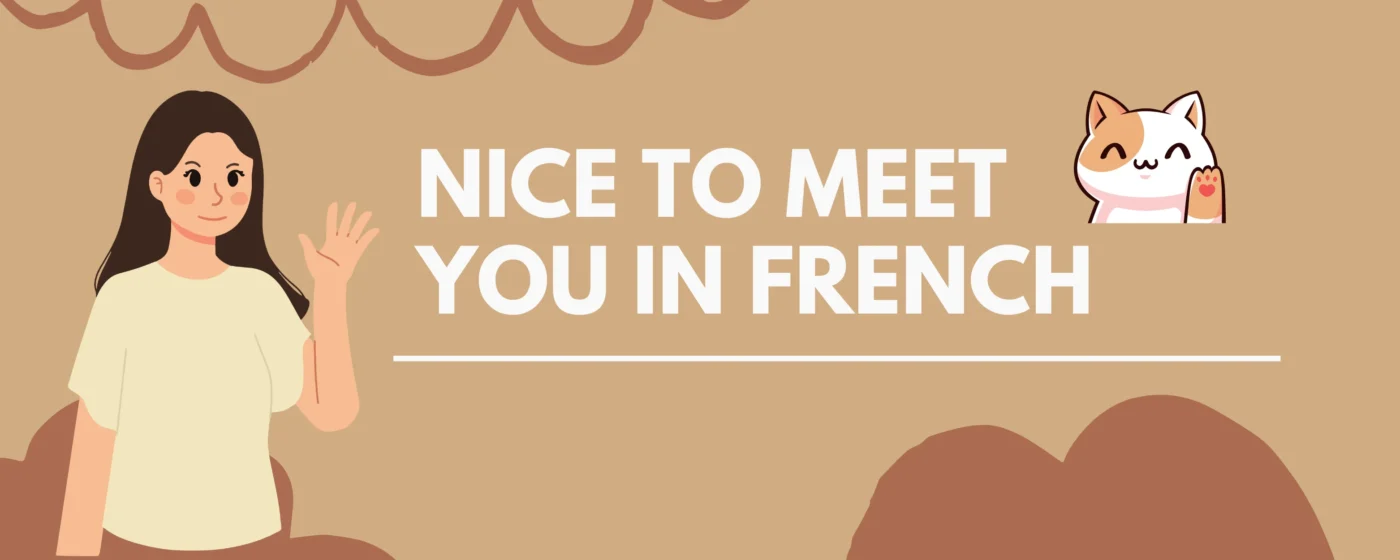Have a big office event to attend or maybe a friend’s graduation party? But don’t know how to congratulate them on the occasion? Worry not, we’ve compiled a list of fun congratulatory words and expressions to use in both casual and formal circumstances. Allez-y!
Why It’s Important to Learn Congratulations in French?
Learning these congratulatory phrases and words will provide you with a wide array of benefits. Learning basic expressions for congratulations is essential for effective communication and understanding etiquette in French. They will not only provide you with practical benefits, but also cultural insights into the language. While these phrases will provide you with certain cultural nuances and insights into the French values and customs, they will also aid your conversations and improve your communication skills as a whole!
Félicitations
Translation: Congratulations
Pronunciation: fay-lee-see-tee-a-syon
This is the most common and versatile way to congratulate someone in the French language. It can be used in most situations, both formal and informal, for a variety of occasions like weddings, graduations or even professional milestones.
Example: You can use “Félicitations pour votre diplôme!” when congratulating someone on their graduation. You can specify the special occasion by adding ‘pour’ and the reason, such as a wedding or graduation. Someone can be congratulated using “Félicitations pour” followed by the event, or “Félicitations à” when addressing a specific person or group, depending on the context.
Bien joué
Translation: Well played
Pronunciation: byehn zhoo-ay
This is a common way to say “good job” in somewhat semi-casual settings, such as after games, sports or while acknowledging considerably smaller achievements. It carries a friendly tone.
Example: You can use “Bien joué pour ta présentation!” to congratulate a colleague who gave a successful presentation.
Another similar phrase is “bien fait,” which literally means “well done.” However, in French, “bien fait” is usually used sarcastically to mean “serves you right,” rather than as a compliment. It is not typically used to congratulate someone.
Bravo
Translation: Bravo/ Well done
Pronunciation: brah-voh
This is probably the most universally recognized way to congratulate someone, across the English and French language. It’s often used in situations that involve performances, such as a project presentation or a theatrical play. While “Félicitations” is more formal, “Bravo” carries somewhat of an informal tone.
Example: You can use “Bravo, c’est magnifique!” to congratulate a friend on a project well presented.
Expand your professional communication with these Business French Vocabulary terms to sound confident in any corporate French setting.
Chapeau
Translation: Hats off to you
Pronunciation: sha-po
The full phrase is ‘chapeau bas’, which literally means ‘hats off’. This expression is considered a bit old-fashioned, but it is still used to show respect or admiration. ‘Chapeau bas’ has historical and cultural significance in French as both a formal and informal way to acknowledge someone’s achievements or honor, similar to the English ‘hats off’. As compared to “Bravo”, it expresses a deeper level of appreciation, just like a well-chosen hat represents a higher level of style in a person.
Example: You can use “Chapeau, Monsieur Dubois, for your innovative solution!” in a professional context.
La classe
Translation: Classy/ Stylish
Pronunciation: la klahs
This is a modern way of conveying congratulations while focusing on elegance and style. This expression highlights the French culture’s appreciation for sophistication.
Example: You can use “La classe, cette robe!” to congratulate someone on a particularly stylish outfit.
Struggling with Vocab? Let's Fix It!
Join our classes and let our teachers guide you to build a vocabulary that sticks!
Trop fort
Translation: So good/ Incredible
Pronunciation: troh fohr
While literally translated to “too good”, contextually it means “amazing/ so good”. “Trop fort” is best utilised in casual settings with friends or family members, and even peers. What’s interesting about this expression is that it is used to convey admiration for someone’s skill or accomplishment, especially when it’s surprising or très exceptional.
Example: You can use “Trop fort!” to congratulate your friend on scoring an exceptional goal.
Bon/Bonne
Translation: Good
Pronunciation: bon/ bun
While both these words mean “good”, they are often creatively combined and used with other words to express congratulations or encouragement. They are versatile words which can be used in both formal and informal contexts with close friends, family, or even in settings involving colleagues.
Example: You can use “Bonne continuation” to wish good luck to someone in their future endeavours, or “Bon travail” to congratulate someone on their work and efforts.
Formal Ways to Express Congratulations
In French culture, using the right words to express congratulations in formal settings is essential, especially during significant milestones like weddings or job promotions. When you want to convey your sincere congratulations at a formal occasion, phrases such as “félicitations pour votre mariage” (congratulations on your wedding) or “mes sincères félicitations” (my sincere congratulations) are perfect choices.
These expressions show respect and genuine happiness for the person’s achievement. Another elegant option is “tous mes compliments” (all my compliments), which you might use in a professional context, for example: “Je vous adresse tous mes compliments pour votre nouveau poste” (I offer you all my compliments for your new position). Using these formal ways to express congratulations not only demonstrates your command of the French language but also your understanding of French etiquette.
Whether you’re attending a wedding, celebrating a job promotion, or marking any formal occasion, choosing the right words like “félicitations pour” or “tous mes compliments” will help you express your admiration and respect in the most appropriate way.
Acknowledging Hard Work with Bon Travail
Recognizing someone’s effort and achievements is a valued part of French culture, and “bon travail” (good work) is a common expression used to congratulate and encourage. This phrase fits seamlessly into both formal and informal settings, making it a versatile choice whether you’re congratulating a colleague on a successful project or a friend on a personal accomplishment.
For instance, you might say, “Bon travail sur ton projet” (good work on your project) or “Félicitations pour ton bon travail” (congratulations on your good work). Using “bon travail” is a simple yet effective way to show appreciation and motivate others to keep up their good work. It’s a basic expression that you’ll hear often in the French language, and it’s perfect for congratulating someone in almost any job or context. By incorporating this phrase into your vocabulary, you’ll be able to express congratulations and encouragement naturally, whether in formal or informal settings.
Expand your French vocabulary by exploring common beverages and phrases in this helpful guide on Drinks in French.
Congratulating New Parents
Welcoming a new baby is a joyful and memorable occasion, and finding the right words to congratulate new parents in French can make your message even more special. For formal situations, you can say, “Félicitations pour la naissance de votre enfant” (congratulations on the birth of your child) or “Toutes mes félicitations pour votre nouvelle arrivée” (all my congratulations on your new arrival).
If you’re in a more informal context, expressions like “Bien joué” (well done) or “Trop fort” (awesome) add a touch of warmth and fun. For example, “Bien joué, vous êtes maintenant des parents” (well done, you’re now parents) is a friendly way to share in their happiness. Whether you choose a formal or informal expression, the key is to be sincere and genuine. Using the right words to congratulate new parents in French will help you share in their joy and make the occasion even more memorable.
Exploring these expressions and phrases will also deepen your connection to the French language and culture. Ready to elevate your French skills further? Explore the comprehensive courses at La Forêt French Class and master French expressions effortlessly.
Frequently Asked Questions
1. How to congratulate someone for achievement in French?
Ans: There are many ways to congratulate someone in French, depending on the context and your relationship with the person. Here are some common options:
- Félicitations! – This is the most common and versatile way to say “congratulations” in French. It can be used in both formal and informal situations.
- Bien joué! – This translates to “well played”, but it can also be used to congratulate someone on a job well done.
- Bon travail! – This means “good job” and is a good way to congratulate someone on their work.
2. How do you say congratulations in a unique way in French?
Ans: If you want to go beyond the standard “félicitations”, here are some more unique and expressive ways to congratulate someone in French:
- Mes sincères félicitations! – My sincere congratulations!
- Je te/vous félicite chaleureusement. – I warmly congratulate you.





